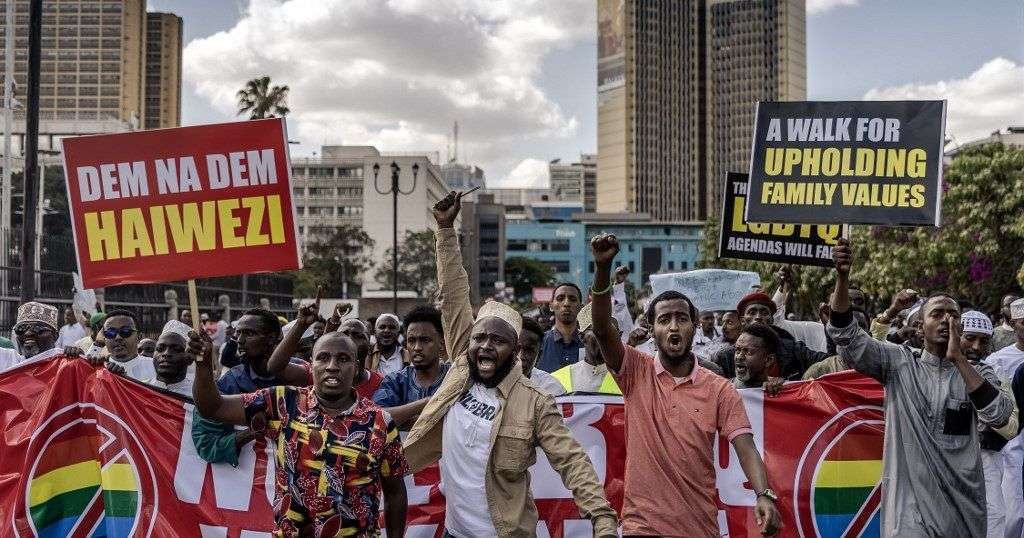Nairobi, Kenya – (African Boulevard News) – In a powerful display of activism, hundreds of Muslims and conservative Christians in Kenya gathered outside the Supreme Court on Friday, protesting against its recent decision to uphold the LGBTQ community’s right of association. The protesters, driven by their religious beliefs, expressed their dissent and concern over what they perceive as a threat to Kenya’s cultural and moral values.
The demonstration was triggered by the court’s ruling last month, which affirmed the rights of LGBTQ individuals to form associations and advocate for their rights in the country. The decision, seen by many as a milestone for inclusivity and equality, has stirred a deep-seated fear among religious groups, leading to this mass protest.
Chanting slogans and holding placards with messages condemning same-sex relationships, the protesters emphasized the importance of upholding traditional family values. They argued that endorsing LGBTQ rights would erode the foundations of Kenyan society and go against their religious teachings.
“We stand here today to defend our faith and protect our children from the influence of the LGBTQ community,” said one protester. “Our culture and religious beliefs teach us that this is not acceptable, and we fear the consequences of accepting this lifestyle.”
While Kenya has made progress in recognizing LGBTQ rights in recent years, the issue remains deeply contentious within the predominantly conservative society. Homosexuality is illegal in the country, with those found guilty facing up to 14 years in prison.
Religious leaders have been at the forefront of the opposition to LGBTQ rights in Kenya, condemning any attempts to decriminalize same-sex relationships and presenting them as a threat to traditional values. They argue that the court’s decision undermines the sanctity of marriage and the family unit, which they believe are cornerstones of society.
In response to the protest, LGBTQ activists have highlighted the need for tolerance and understanding. They argue that everyone deserves to be treated with dignity and respect, regardless of their sexual orientation or gender identity.
“We urge religious leaders and communities to engage in dialogue with us,” stated an LGBTQ advocate. “It’s important to bridge the divide and promote acceptance. We can coexist despite our differences.”
As the debate surrounding LGBTQ rights continues in Kenya, it remains a challenge to find a common ground that respects both religious freedom and human rights. The Supreme Court’s decision has opened up an important conversation about inclusivity, and it is crucial for all stakeholders to engage in meaningful dialogue to find a way forward.

